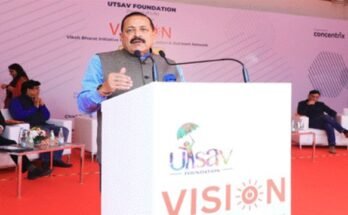New Delhi : At a breakfast session held by The Economic Times India Leadership Council, a peer group platform that brings together a group of senior business leaders representing a cross-section of industry verticals, Arvind Sahay of the Indian Institute of Management, Ahmedabad (IIMA), discussed the subject of livelihood enrichment .
“The challenges are pretty big. In the next 10 years, India will need to provide 100 million jobs,” Sahay said.
The event also saw the presence of skill development secretary KP Krishnan, who said that while the capacity of Industrial Training Institutes (ITIs) can’t meet demand, training quality is poor, as a result of which employability suffers.
India has over 13,000 ITIs, out of which 85% are run by the private sector and 15% are government funded.
The India Leadership Council, a membership-based engagement platform with access restricted to a select group of companies, aims to help achieve the goal of building the country’s overall business environment and develop business leadership.
The professor also said academic institutions should work toward making their curricula more industry relevant.
Committee members emphasized the need for industry, government and educational institutes to work hand in hand to develop relevant pedagogy as well as to have a future-ready, skilled workforce.
Forums like ILC will highlight the need for far stronger collaboration among corporates, the government and educational institutions, said Sanjay Modi, managing director, Asia-Pacific and Middle East, Monster.com.
“We could be the global exporters of manpower and that will fuel not only the economy but the global economy, irrespective of the inward-looking approach of most of the Asian economies,” Modi said. “We need to have more flexibility to change curriculum in courses like engineering. In the best of colleges, I don’t think that has happened yet.”
ILC functions under The Economic Times brand and is part of Times Strategic Solutions. “In the short term, we need to focus on increasing scale of skilling and convergence across ministries while in the long term we need to put in place the vocational education training system,” Krishnan said.
People over product is the strategy of Anchor Electricals, said Dinesh Aggarwal, joint managing director. “Unless you have great people, no company can be successful,” he said. The company has about 6,000 workers, 56% of whom are women, and has generated substantial employment.
Sanjaya Gupta, MD, PNB Housing Finance, said after agriculture, construction sector provides the maximum employment. The housing finance firm funded about 4,500 workers to be re-skilled and up-skilled last year. A white paper on the session and the findings will be presented to the government.
RBL Bank managing director Vishwavir Ahuja said: “For us, there was a need to educate our employees on appropriate skills. We have tied up with local institutions where we have different programmes, like a short-term one where people are bank trained in terms of basic banking skills and also a longer term programme where we collaborate for a one-year-plus programme.”
Indus Strategy Financial Advisors CEO Manish Chaturvedi said it took up an initiative to work toward creating an employable workforce and has engaged with 4,000 students for this.
“There are a lot of ITIs and we are an affiliate ITI. We’ve realised that the format of delivery isn’t creating an impact on skilling. We’ve tied up with institutes like TISS in one of our initiatives in a tier-3 city like Mathura for this.”
On the sidelines, NetApp India Marketing and Services president Anil Valluri said a forum like ILC can help industry get different insights on how it can bridge the gap with academia.
“We have to adapt to the real world in terms of pedagogy,” Valluri said. “Academia in India lags the industry unlike in the west where a lot of original research has happened. The government alone cannot make this happen.”
Note: News shared for public awareness with reference from the information provided at online news portals.



